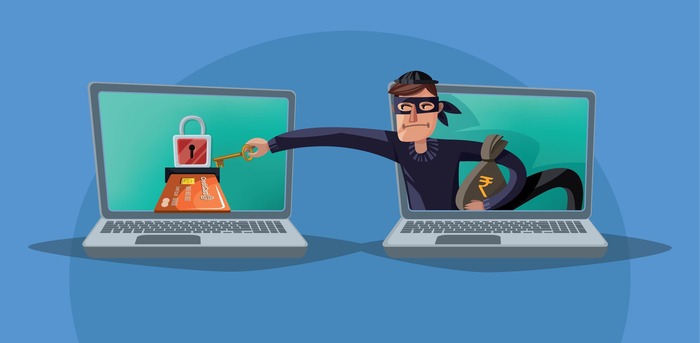For modern society, the Internet has become a necessity, a tool that makes life easier and society more connected than ever before. However, this connectivity has also given easy access to all kinds of online scams and fraudulent schemes.
Cyber criminals constantly evolve with time, which is why individuals and institutions need to be cautious and aware about common fraudulent schemes. In this article, we’ll discuss how you can identify and counter such fraudulent schemes for better online security.
Common Forms of Online Fraud
Phishing
Phishing is one of the most common forms of online fraud, in which scamsters pose as legitimate companies to acquire sensitive information such as usernames, passwords, and credit card details.
These come in the guise of real-looking e-mails, text messages, or websites that are supposed to entrap a person into giving out personal information.
Malware and Ransomware
Malware is a generic term for malicious software intended to cause harm to, exploit, or otherwise compromise a computer system. On the other hand, ransomware refers to malware that encrypts a victim’s files and then solicits payment from the victim in exchange for the decryption key.
There are multiple methods to deliver this harmful software, including malicious email attachments, infected websites, or as part of a software download.
Online Shopping Scams
Online shopping scams may involve a person contacting a fake e-commerce site or a rogue trader on a legitimate platform to lure consumers into sending money for a product or service that is not either fulfilled or provided as expected or described.
Identity Theft
Identity theft results from cybercriminals getting someone’s personal information and, most of the time, for financial gains. It might involve stealing credit card numbers, social security numbers, or any other form of information used to commit fraud by making purchases.
Scam Investments
The most common form of online fraud is investment fraud, which promises victims a high return on some type of investment but with low risk. This can include Ponzi Schemes, fake cryptocurrency exchanges, and bogus stock tips, among many others.
Identifying Fraudulent Schemes
Given how common online scams are these days, it’s only wise to gain knowledge about them and learn some of the tell-tale signs to detect these.
Let’s start with unsolicited emails, telephone calls, or texts requesting personal information or requiring instant action. Legitimate companies rarely ask you to provide sensitive information to them through these avenues. So, if you receive any such call or email message, be sure to double-check the source before taking any action.
Many fraudulent schemes perpetuate the use of URLs and email addresses that are only slightly different from legitimate companies. Misspelled words, odd domain names, or other discrepancies in URLs and email addresses would also be a red flag. Rather than “amazon.com,” for example, a phishing site might use “amaz0n.com.”.
Many of these scam messages come from non-native English speakers. So you can look for grammatical or language mistakes. Most companies will also greet you by name, but scams will use generic salutations like “Dear Customer.”
Additionally, scamsters often use pressure tactics, forcing you to fix something immediately, or else you will face dire consequences—just to make you act quickly and without thinking.
Be wary of messages that insist on immediate action or threaten dire consequences if you don’t comply. It’s also a good idea to use a scam checker in case you receive a suspicious message or email and want to verify its authenticity.
If a message or call sounds too good to be true, it probably is. So, be leery of high returns on investments with little risk, unbelievably low prices, or promises of free items or large sums of money. Remember- there are no free lunches in this world.
Thwarting Fraudulent Schemes
Remember, awareness is the best defense against online fraud. That means staying up-to-date on the newest scams and tactics cybercriminals can use.
Follow trustworthy sources of information on cybersecurity and consider subscribing to updates from organizations such as the Federal Trade Commission or major cybersecurity firms. You should also use long and unique passwords for all your online accounts.
You can use a password manager to create unique, complex, and secure passwords. It is also a good practice to use two-factor authentication for the services that allow you to do so.
Review your bank and credit card accounts at least monthly to verify that no unauthorized activity has occurred. Check for unauthorized transactions and set up suspicious activity notifications on your accounts. Notify your financial institution of any inaccuracies right away.
Stay away from using public Wi-Fi for sensitive transactions. Turn on your virtual private network for secure encrypted internet connectivity to keep eavesdroppers away.
Be wary of the information you share online, especially on social media. Hackers quickly get enough information in personal profiles and could craft convincing phishing emails or even go as far as to steal your identity.
Report any suspicious emails, websites, or individuals to relevant authorities. Many organizations take care of this, including the FTC, the Internet Crime Complaint Center (IC3), and local law enforcement agencies.
Last but not least, make sure your devices run good cybersecurity software. Update this software, your operating system, and other applications on a regular basis to help defend against the newest cyber-attacks.
Bonus Tip: Before giving away sensitive information or making a payment online on a website, look for a secure connection at the start of the web address, such as ‘https://’, and research the entity in question—a website or a person. Look for reviews or reports of fraud cases linked to this entity.
The digital world is a big, open playground for all kinds of deceitful schemes to trap the innocent. You can reduce your chances of being a victim of online scams with education, strong security practices, and just the right amount of skepticism.
Finally, always remember that awareness and education are the best defenses against cybercriminals, who, with every passing day, come up with more sophisticated ways to trap their victims.


